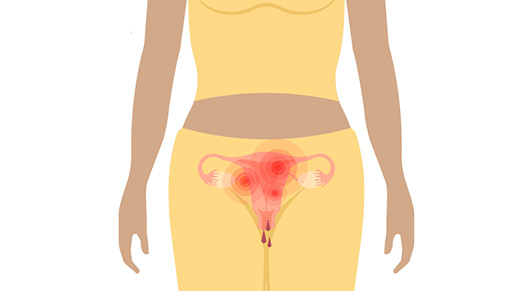What is Uterine Inflammation?
White blood cells, cytokines, and inflammatory mediators are released into the uterine fluid during an immune response that results in uterine inflammation, also known as endometritis or endometrium.Most frequently, this happens with bacterial infections after parturition (childbirth), miscarriage, induced abortion, IUD usage, and the presence of an ongoing genital tract infection. Fever, discomfort, and uterine contractions may also result from it.
What are the causes?
Germs frequently bring on uterine infection. Streptococcus, staphylococcus, listeria, and clostridium are some of the most typical bacteria that cause uterine infections. Sometimes a chemotherapy-related inflammation of the uterus can be brought on by a chemotherapeutic drug like mitomycin or doxorubicin, which is often used to treat cancer. A virus or fungus may also be the source of a uterine infection.
What are the symptoms?
Fever, chills, vaginal discharge with an unpleasant odor, uterine cramps, and maybe scarring of the uterus are all indications of active uterine inflammation.
What are the diagnostic methods?
The doctor will analyze your medical history, clinical information (including signs and symptoms), physical exam results, and laboratory testing to diagnose uterine inflammation correctly. The doctor often conducts a pelvic exam to determine the pathologic cause of the uterine infection.
What are the treatment methods?
The intensity of uterine inflammation determines the course of therapy. Oral antibiotics can be used to treat a minor disease case at home. Two different antibiotics may occasionally be prescribed by a doctor to be taken concurrently yet independently. The uterine infection may occasionally be treated with intravenous (IV) antibiotics.
What are the preventive measures?
Maintaining good hygiene and thoroughly cleansing oneself after any activity can reduce your risk of developing uterine irritation. To relieve the itching, burning, or pain in your vagina, you can use an over-the-counter vaginal cream, pills, or combination treatments. Avoid introducing anything into the vagina, including your fingers and tampons, and avoid douching as this might increase your risk of infection.
Take Away
Although uterine inflammation occurs abruptly and is not cause for concern, if you have a fever or other infection-related symptoms, call your doctor right once.
